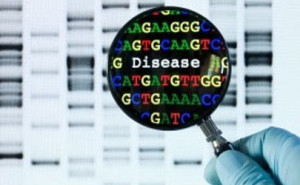Every hour of every day people around the world are living with and working to resolve food safety issues. Here is a sampling of current headlines for your consumption, brought to you today with the support of Alchemy Systems.
 Poison prison brew has high price
Poison prison brew has high price
A botulism outbreak in a Utah prison cost local taxpayers at least $500,000 after inmates used potatoes to brew illicit alcohol. It was the fifth such prison botulism outbreak in the past decade.
A recent study published by the Oxford University Press and Infectious Diseases Society of America (IDSA), reported eight prisoners developed botulism after drinking “pruno” made with a potato in 2011. Laboratory tests of a fluid from a sock that the inmates used to filter the brew was positive for C. botulinum type A.
“Challenges of the investigation included identifying affected inmates, overcoming inaccuracies in histories, and determining how the illicit beverage was shared. Costs to taxpayers were nearly $500,000 in hospital costs alone,” according to the research report.
 Disease detectives crack outbreak, prompt recall
Disease detectives crack outbreak, prompt recall
Disease investigators at the Massachusetts Department of Public Health are being credited with identifying a Salmonella outbreak caused by an unusual strain of the pathogen.
Patricia Kludt, director of the state Department of Public Health epidemiology program, told the Boston Herald newspaper that the Salmonella found in frozen, shredded coconut from Vietnam was not in the pathogen database maintained by the U.S. Centers for Disease Control and Prevention.
The work by the Massachusetts public health employees prompted Evershing International Trading Co. to recall all lots of its frozen shredded coconut sold between Jan. 3, 2017, and Jan. 3, 2018.
“Staff from DPH’s Food Protection Program in the Bureau of Environmental Health, the State Public Health Laboratory and the Epidemiology Program housed in the Bureau of Infectious Disease and Laboratory Sciences, and the Boston Public Health Commission discovered the unusual Salmonella strain while investigating a single case of Salmonella,” according to a news release from the state health department.
As part of the investigation, staff from DPH and Boston Inspectional Services collected samples of various food products used as ingredients from a Boston restaurant and interviewed people who fell ill. An unopened package of raw frozen coconut meat, was positive for Salmonella.
 Flesh-eating bacteria contracted from raw oysters
Flesh-eating bacteria contracted from raw oysters
Family and friends of a Texas woman who died after eating raw oysters contaminated with flesh-eating bacteria have mounted a campaign to raise awareness about the dangers of eating raw fish.
Jeanette LeBlanc died Oct. 15, 2017, after 21 days in the hospital. Before she became ill she and a friend bought some fresh oysters from a market in Westwego, LA. They shucked them themselves and together ate about two dozen of them raw.
Within 36 hours LeBlanc was in extreme respiratory distress and had developed a severe rash on her legs. She was diagnosed with vibriosis, caused by various Vibrio bacteria found in seawater and sea creatures.
Contrary to popular belief, the federal agency says lemon juice or hot sauce does not kill Vibrio bacteria in raw oysters. Neither does drinking alcohol while eating.
People can contract vibriosis by consuming raw or undercooked seafood or by exposing a wound to seawater, according to the Centers for Disease Control and Prevention.
(To sign up for a free subscription to Food Safety News, click here.)

